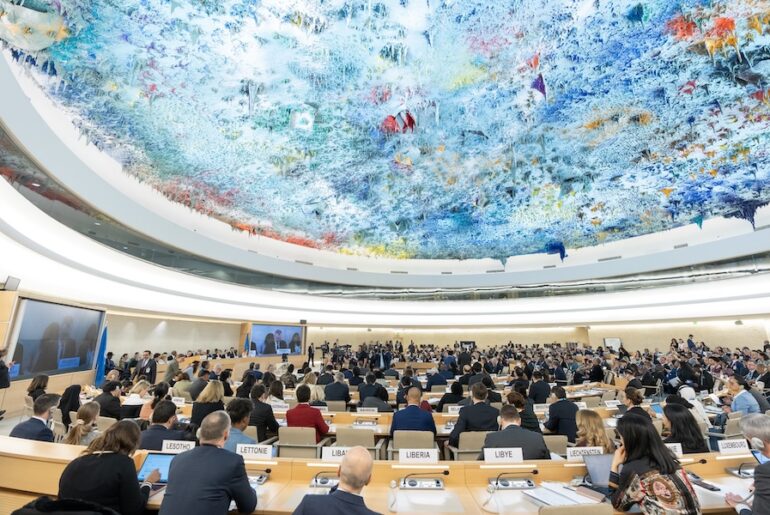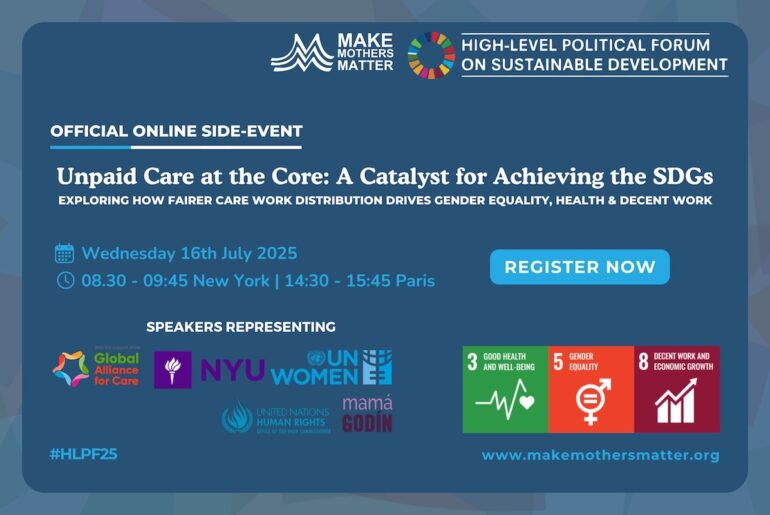‘Care has no value in our economic systems’ says Sociologist Maria-Angeles Duran
19.03.19
UN New York – The topic of Care took centre stage at the UN Commission on the Status of Women. We at MMM argue that despite its lack of market value in economic systems, the future of society through its children, the wellbeing of its members via the extended family, and even economic growth thanks to workers’ availability and pay depends on it.
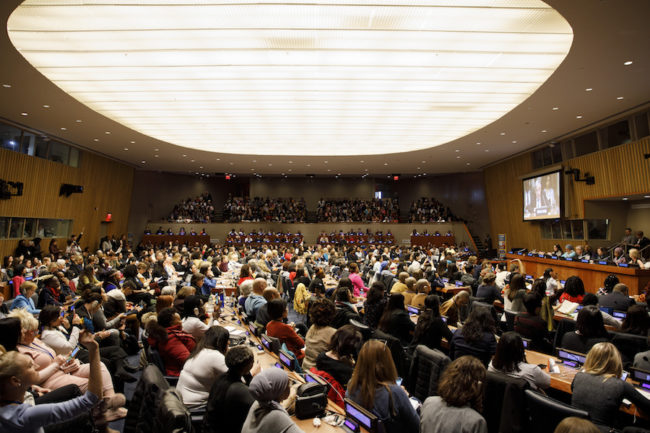

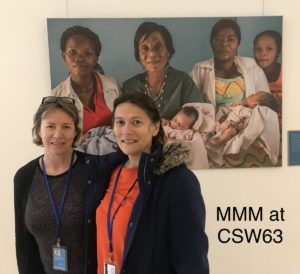
Inès Rosell & Pascal Restuccia, MMM Representatives
The priority theme at this year’s 63rd CSW session is “Social protection systems, access to public services and sustainable infrastructure for gender equality and the empowerment of women and girls”.
Ines Rosell, MMM representative at the UN in New York emphasises that women are Right Holders, Carers, Workers and Mothers. The following is her report.
#formothers – we need social policies that work for mothers whether paid maternity leave, parental leave, universal health care, or quality child care.
Finland’s Health Minister represents one of the countries with the best maternity and child policies in the world, including the famous baby boxes. She explained how far back these policies go, to 1930 to be precise. A supportive maternal system cannot be built overnight she stressed. It‘s a long-term commitment that eventually pays off because of its benefits for families, and more generally to society.
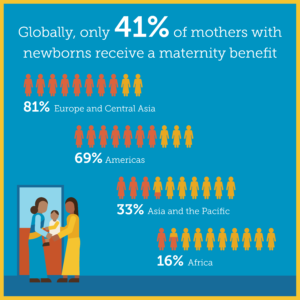 A Woman’s reproductive role has an impact on her life and welfare. By being mostly in charge of raising children and taking care of the family, both of which are unpaid work, women are losing out on personal income, career prospects and ultimately, pensions.
A Woman’s reproductive role has an impact on her life and welfare. By being mostly in charge of raising children and taking care of the family, both of which are unpaid work, women are losing out on personal income, career prospects and ultimately, pensions.
We need a premium for unpaid family care work to balance the injustice this responsibility places on women. Some countries such as France, that has a one-year bonus per child on retirement, are advancing policies in this direction. But more needs to be done.
#sharethecare – we also need more participation from men in care work.
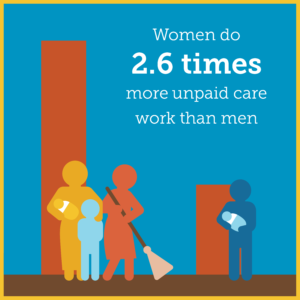 The Ministers of Social Affairs for Finland, Sweden, Norway, Denmark and Iceland, unified to highlight the importance of a father’s role in childcare.
The Ministers of Social Affairs for Finland, Sweden, Norway, Denmark and Iceland, unified to highlight the importance of a father’s role in childcare.
These Nordic countries are the pioneers of paternity leave. They agree that a better share of childcare and family chores within a household is crucial for enhancing a woman’s participation in the economic sphere. This induces an increase in income for the woman, and as a result, an increase in economic growth for countries. At the end of the day, it is crucial for achieving gender equality.
The implementation of paid paternity leave, added to paid maternity leave, goes some way towards achieving greater involvement of fathers with a positive triple impact on the mother, the child and the father himself. But it is not enough. Japan and Korea offer the longest paternity leave – the problem they face is that fathers don’t take this leave, as compared with Norway, where 80% do.
Countless countries also struggle with economic issues. Unfortunately, austerity policies are taking away social protection programs, in particular those that benefit women and mothers.
Childcare, Elder care… women are the ones who are taking the brunt of the lack of public services.
The cost of care, which is time-consuming work, explains why the responsibility lies on the shoulders of women from within the family, or women migrant workers. It takes 17 to 18 hours a day to take care of a newborn. Imagine the cost if mothers were paid at minimum wage plus charges!
“Care is not a market good”, says sociologist Maria-Angeles Duran. “For our economic systems, it has no value”. Nevertheless, the future of society (children), the wellbeing of its members (extended family) and even the economic growth (workers availability and pay) depends on it.
See also:
- the written Statement MMM submitted ahead of this session
- MMM recommendations to address the issue of unpaid family care work
Envisioning care as a common thread to global crises
29.07.24
UN New York - Our virtual HLPF side-event brought together experts to shed light on how the various global crises we face (in particular climate change and other environmental crises,
We call for multi-stakeholder approach to recognise and support unpaid care work
21.07.24
UN New York - Participating in the meeting of the UN Economic and Social Council (ECOSOC) on care and support systems, MMM reaffirmed the principle of co-responsibility, which should underpin
The New EU Gender Equality Roadmap : A Call for Inclusion of Mothers
04.03.25
The European Commission’s initiative on a new Gender Equality Roadmap post-2025, marks a significant step forward in addressing gender disparities across the European Union. Make Mothers Matter (MMM



